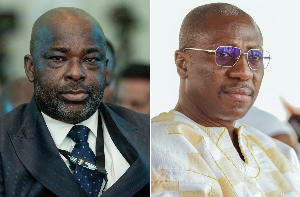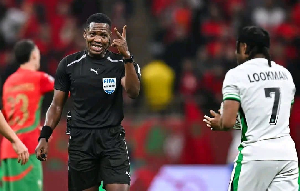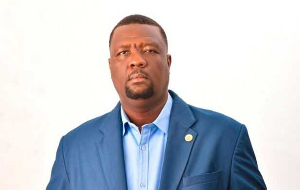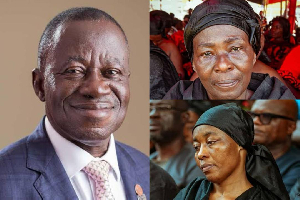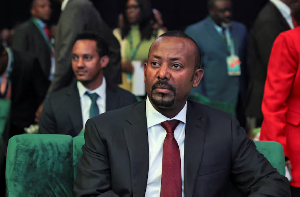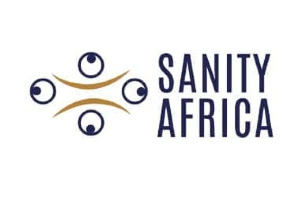By Kofi Ata, Cambridge, UK
Until recently, I held the belief that when it comes to the tenets of democracy and the ethos of rule of law, the parties from the Danquah-Busia tradition including the NPP stood high above all other parties in Ghana. Sadly, I have had to review this position after a critical examination of actions of the two governments that have been formed by the UP or Danquah-Busia tradition and their attitudes towards the rule of law particularly, judicial decisions that were against the two governments. These were the governments of the Progress Party led by the late Prime Minister Dr Kofi Abrefa Busia and the National Patriotic Party under former President John Kufuor.
The best example that comes to mind was the first government of the Danquah-Busia tradition under the Progress Party government. That was the infamous “No court”, “No court” in the “Apollo 568” Supreme Court Judgement. For those who are unaware of the case, the Busia government summarily dismissed 568 public workers without reason in pursuant of Section 9 (1) of the Transitional Provisions under the 1969 Constitution. The Transitional Provision granted that, all positions “established” by the then National Liberation Council (NLC) government (the military junta that overthrew Nkrumah’s government in 1966) will be discontinued no longer than six months of coming into force of the Constitution.
Mr Sallah was appointed GNTC Manager by the NLC and was therefore one of the dismissed public servants. As a victim of the 568 he challenged the legality of his dismissal and the case went to the Supreme Court. The Supreme Court by a majority decision ruled against the government. To the surprise and disappointment of those who believed in true democracy, the rule of law and respect for the judiciary, Prime Minister Busia in a highly emotional radio and television broadcast on the night of April 20, 1970 attacked the judgement of the Supreme Court, boasted and stated emphatically that, “No court could enforce any decision that sought to compel the government to employ or redeploy anyone”.
The Busia government tried to defend its rejection of the Supreme Court judgement by claiming conflict of interests involving two of the Justices. Prior to the hearing, the Attorney General at the time raised a preliminary objection to the composition of the Court. The State objected to Justices Apalloo and Sowah being empanelled because the former was alleged to be a close friend of Mr Sallah and the latter’s sister was married to one of the Apollo 568 victims and the sister had asked him (Justice Sowah) to intervene on her husband's behalf, which Justice Sowah did (as per the then Foreign Minister’s affidavit). However, the objection was overruled. The issue at stake was whether a GNTC Manager appointed by the NLC came under the ambit of section 9(1) of the 1969 Transitional Provisions. In my view, a GNTC Manager was not a position “established” by the NLC but existed prior to NLC and so predated the NLC itself. Mr Sallah was merely appointed into an existing position and not into an “established” position. Though the conflict of interest was valid, the outcome could have been the same without Justices Appallo and Sowah.
For a government that boasted of a strong belief in democracy, the rule of law, the separation of powers and the independence of the judiciary and also led by no other person than Busia who the present NPP claims to be the doyen of democracy in Ghana and Africa, it was the worst form of abuse of Executive powers and total disregard for the separation of powers. Even some of his own supporters and party followers including the late Prof Adu Boahene were disappointed by Busia’s response. This is how Adu Boahene described the response at the time, “the speech did not only shock the bench but also those who have read Busia’s work on Democracy in Africa, the Rule of Law and the Theory of Separation of Powers”.
Under the NPP government, Ex-President Kufuor was also accused of allegedly manipulating the Supreme Court to reverse an earlier judgement that went against his government by appointing pro government Justices to the Supreme Court, instead of accepting the original judgement of the Justices. It was also alleged that in the case of the State vs Tsatsu Tsikata, the Judge was influenced by the Executive to give her judgement unexpectedly in the absence of his Attorney. These fragrant abuse or misuse of Executive powers cast a slur on the democratic credentials of the Danquah-Busia tradition, particularly, in the area of rule of law, separation of powers and the sanctity of the judiciary.
The third example was an article that appeared on Ghanaweb on January 5, 2012, an alleged Press Statement by the current Attorney General in response to a statement by the former Attorney General under the NPP administration regarding the payments of various judgement debts under the NPP administration (see How Kufuor & Co Caused Ghana Trillions of Cedis). From the statement it appears the NPP government simply refused, disregarded or ignored the various judgements by competent courts of jurisdiction in Ghana to pay judgement debts against the state. In fact, NPP government contested some of the claims up to the Supreme Court and lost, yet ministers refused to comply with the court judgements. The total disregard for the judiciary was tantamount to breach of the Constitution, negligence of duty or abrogation of duty by the government. It is unbelievable that a government of a party full of “legal luminaries” who portray themselves as a party of law and order with a firm belief in democracy, rule of law and respect for the judiciary could show such utter contempt towards the judiciary.
It is the prerogative of every government to review and or reverse decisions of previous administrations including termination of agreements and contracts entered into on behalf of the state. This happens globally at local, regional and central government levels and even at organisational levels for whatever reason/s. However, any revision or termination of existing agreements and contracts must be done within the spirit of the terms and conditions of such agreements/contracts, otherwise breach of agreement/contract may occur, which could result in the other party to the agreement/contract to claim or sue for compensation. I am not an expert on Contract Law but one does not need to be an expert to know this common sense principle. I also know from experience of managing contracts, including over £16 million per annum public contract in the UK that sometimes terminating legally binding contract without due regard to the terms and conditions could be more expensive than allowing the contract to run its full time.
I am therefore not questioning the decision of the previous NPP ministers to review revise and terminate or refuse to honour agreements and contracts entered into by the previous NDC government, which they had the right to do so but their total disregard to follow the due processes for such matters as well as their disrespect for the judiciary. The fact is that, having breached by their unilateral and illegal decisions which resulted in the other parties to the agreements/contracts exercising their legitimate rights to claim or sue the state for compensation, the same ministers did not only fail to defend their actions and omissions in courts or their defence fell short of reasonable explanation, but also failed to abide by the court judgements. These are matters that beat my imagination and which led me to question the party’s, especially its leading members’ belief in the rule of law and the judiciary. For example, how could the ex-NPP government and its Attorney General/s justify the decision not to honour the agreement with Calf Cocoa of $1.8 million resulting in additional cost of $1.75 million to the state after Calf Cocoa sued the government and won? Why in 2007 after the then Attorney General failed to file a defence in court when Rockshell successfully sued the state for compensation also refused to pay the judgement debt that now allegedly stands at about $87 million (which has been negotiated to $35 million?). Why in 2001 did the NPP government refuse to pay a judgement debt of $10 million to City and Country Waste Ltd after a Supreme Court judgement, that the state is now paying $29 million? How could the NPP administration defend their decision not pay a judgement debt of GHc 50, 279 in 2003 which now stands at GHc 6 million?
The above are examples of the Busia-Danquah tradition’s disdain towards the rule of law and the judiciary. The actions of the NPP were either incompetence at its highest order, negligence or sheer arrogance by ministers of the administration. Perhaps, they thought they were above the law but by their incompetence, arrogance and disrespect for the rule of law, Ghana is paying a high price for such irrational behaviour and abuse of Executive powers. Their actions and omissions on these matters are legally reprehensible and morally “contra bonos mores”. I have no doubt that such negligence of duty by the previous NPP government could be criminal. Though I am not a fan of the crime of “causing financial loss to the state”, as it could be abused by politicians against their opponents, there is the need for those who made these decisions, especially the then Attorney General/s to account for their actions and omissions. These are the very people who are today accusing the NDC administration of incompetence and doing anything and everything to seek the mandate of Ghanaians again. They claim some were excellent Attorney Generals. The fact is, there were incompetent and arrogant ministers in NPP administration and not only NDC ministers are incompetent.
Another example is the ongoing “Woyomegate”. As far as the Woyome saga is concerned, it does not make sense to me and appears to me that there is insanity at certain level of government in Ghana but that is not the subject of this article. A former Finance Minister under the NPP administration is reported to be refusing to submit himself to the Economic and Organised Crime Organisation (EOCO) to answer questions regarding judgement debts against the state during the NPP administration. The NPP as a party has “cleverly and conveniently” issued a statement that because the President rejected a suggestion for an independent commission to investigate the matter instead of EOCO, it has advised its members not be part of the EOCO investigations. Why do I say cleverly and conveniently? NPP claims that the President’s order to EOCO to investigate the payment to Mr Woyome contravenes the constitution because it is only Parliament that has powers to deal with matters arising from the Auditor General report. If that is the case, then, why did the same NPP call on the President to set up an independent commission to investigate the payment and would such action by the President not contravene the constitution as he would have usurped the powers of Parliament as is being claimed by the party?
The answer to the earlier question is that, NPP cleverly and conveniently wants a Presidential Commission because those who appear as witnesses before a Presidential Commission are granted automatic immunity from prosecution as was the case in the Ghana@50 Inquiry. NPP is scared of some of their leading members including former ministers being found wanting and being prosecuted, so they want to avoid accountability at the courts. Clever, isn’t it? But sadly their luck of misusing the judiciary to their advantage may have run out this time because the President has learnt his lessons from the Ghana@50 Presidential Commission and not repeating it to give a blanket amnesty to those who by their actions, omissions and negligence have contributed to the financial burden on the state. If NPP believes in democratic institutions then they should support democratic institutions such as EOCO to do discharge their responsibilities unimpeded instead of undermining it by refusing to cooperate with it. As Obama said, “we need stronger institutions”.
In my opinion, the Danquah-Busia tradition is anti-rule of law and no friend of the judiciary. In fact, they play the judiciary to their parochial interests but pretend to be defenders of rule of law and the judiciary in Ghana. That is far from the reality. Sadly and sometimes naively, some leading members of the NDC make public pronouncements that are anti-judiciary such as the “there are many ways of killing a cat” and the accusations of corruption against judges, whilst on the other hand, NPP leading members portray a public image of friends and defenders of the judiciary when their actions in the past are anything but pro judiciary. Of course, the treatment of the judiciary under the PNDC era is also a reminder of the anti-judiciary image of the NDC but frankly speaking, NPP also has disrespect for the authority of the judiciary in Ghana.
The “legal luminaries” within the NPP including the former Attorney Generals should respond to the matters raised herein and persuade me that, the Danquah-Busia tradition including NPP is not anti rule of law party. Please do not remind me about the responses of other past governments such as Nkrumah’s responses to judicial decisions because we know such governments were undemocratic. I am questioning the validity of a postulate that is supposedly rooted in a strong belief in democracy, rule of law and respect for the judiciary and not dictatorships.
By Kofi Ata, Cambridge, UK
Opinions of Friday, 13 January 2012
Columnist: Ata, Kofi


